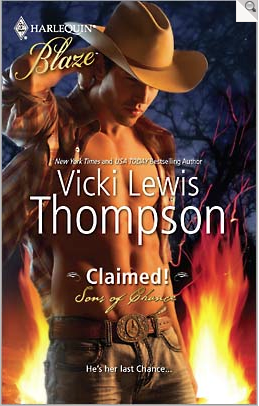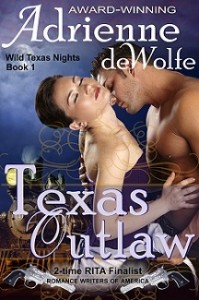So, I had dinner with an old friend the other day. She’s a publishing neophyte, just polishing her first finished manuscript to submit to agents, and as we hadn’t caught up in awhile we had LOTS to talk about. It was wonderful for both of us, because we could discuss bookish things and nobody’s eyes glazed over. But I realized two things as I was talking with her: one, of course, that it really is different when you’re on the other side of all those as-yet-unpublished hurdles (we say it isn’t easier, but in many ways it IS, let’s face it); and two, that I was actually in a position of a certain amount of trust in that conversation. I had a responsibility to give the best advice I could, and to consider the impact on a new-to-publishing writer of whatever I might tell her. Because I was the supposed expert.
You writers out there, you know what’s coming next. Writer-brain got on the hamster-wheel. Reactions to my epiphany ranged, within seconds, from holy shit, I better not fuck this up, and if I explain the “Save the Cat” genre thing wrong because of this mojito I’ll never live it down later, to This is awesome! I’m godlike! The power! THE POWER! Where is my entourage? and finally Oh, wow. I guess I actually have been learning things this past five years. I totally sound like I know what I’m talking about.
I have that last thought all the time, not just over writing-themed dinner conversations. It never ceases to amaze me when I fail to be clueless about something. But I digress.
Later, after the mojito had worn off, I considered the stuff my friend and I had discussed, and tried to narrow down the best pieces of writing advice I’d received since starting my authorial career. You know, so that if I were in that situation AGAIN I’d have something at the ready, some pearl of wisdom to hand down that I knew would be good advice. One simple thing stood out, and it was also the best wonk-writing advice I think I’ve ever received, so take heed if you want to wonk out your story.
The advice was, “needs 40% more anguish”. It was a marginal note that Ruthie Knox left me during a beta-read, and it applied to that manuscript particularly, but it struck me as so useful that I have since put it in big letters at the top of my index card of things to remember while I write (this is posted where I can see it as I type).
40% more anguish. I needed to fuck my characters’ shit up more. Worse things needed to happen to them. Worse things needed to have happened in their past, to warrant more meaningful responses in the story’s “now”. There needed to be conflict, yes, and there needed to be conflict that related to their own character development arcs, sure, but there also just needed to be more of it. Black moments needed to be blacker. And that one consideration should inform your entire manuscript (even if it’s not a dark or heavy book). So that when the reader finally gets to the black moment, there’s a feeling that things were always leading to that place. Things had to go there. And even light moments can foreshadow that.
In photography, you usually want to capture at least some note of absolute black in your composition; it gives you contrast, but it also provides context, giving the eye a fixed reference point from which to guage all the other shades. It calibrates you, the viewer. In writing, though it may not seem to appear until three-quarters of the way through your book sometimes, that black moment calibrates your character’s emotional arc for the reader. And there’s the critical part – it doesn’t just suddenly happen three-quarters of the way through the book. That moment has to be supported, and in order to support it you have to lay the groundwork, lay the seeds of anguish so it can come to fruition when you need it to. Horrible, sticky, messy, dark, poisonous fruition.
One perfect example of this is a scene between Beatrice and Benedick in Shakespeare’s Much Ado About Nothing. The play is a comedy, full of witty, sexy banter and party scenes. The two secondary characters and their offbeat un-romance steal the show, and all their scenes are classics of comedy snark. All their scenes until…(dunh dunh duuuunnnhhh) the one after the first wedding scene. The failed wedding scene, in which the intended groom, Claudio, denounces his would-be bride Hero as a faithless jade (for various reasons, he thinks he’s seen her with another man). Hero appears to die in mortification, the mood races downhill, things are chaos, and when they’re left alone on the stage, Beatrice and Benedick stumble into confessing their love for one another (it’s complicated). Then, as one does with one’s newfound swain, Beatrice asks Benedick to prove his love with one simple act: “Kill Claudio”.
She’s not kidding, either. Beatrice doesn’t fuck around, and if she could do it herself she certainly would, but since she can’t, she holds her shiny new love hostage until Benedick pays that ultimate price. But here’s the thing…it isn’t really a shiny new love. There are hints in their banter and elsewhere that these two have a history, that their conflict perhaps arises from misjudging one another in the past, and that what’s really changed in this moment isn’t the other characters tricking them into liking one another, it’s the fact that for the first time in this scene they are really communicating. Speaking directly, saying exactly what they think and feel. It’s a breakthrough for them. And we also believe Benedick would do this for her (though of course he refuses at first), because it’s been set up. One of those earlier classic scenes of comedy snark? All about how he is genuinely taken aback at her assessment of his character. He wants to prove himself to her. He also wants to be a fool for love, to be “horribly in love with her”. There’s a feeling of inevitability when he finally agrees (spoiler alert: he doesn’t end up having to kill Claudio, and Hero isn’t really dead; they get married at the end, and everybody learns a valuable lesson about trust and the dangers of rushing to judgment).
I’ll end with an analogy, a gross one but I think an apt one that you’ll remember. The 40% more anguish thing…it’s like you want to make sure your lowest, blackest moment is a monster zit (or a boil, if you prefer), not a mosquito bite. No, really, bear with me. Two red lumps on your skin; they can look identical at times, but they’re very different. A mosquito bite is borne in by an external force, stings for a second maybe, swells up into a lump, itches a few days, then goes away pretty much on its own. A monster zit can lurk for weeks beneath the skin, just waiting to show itself. Sometimes you get that shadowy pain before the thing is even visible, as the bacteria and dead skin skills contemplate their strategy. By the time it’s visible, it’s already more painful than a mosquito bite, and that zit is all you, baby. All stuff that’s either part of your body or lives on your body all the time as a secret bacterial hitchhiker. No external force put it there. And you can maybe ignore it, cover it up, brush your hair differently to hide it…but eventually you know that thing is going to come to a head, and it’s going to be nasty. And even once it pops and drains, it’s going to be a mess and may even leave a permanent scar.
So next time I’m supping and tippling with a fledgling writer, I’ll have my advice ready. “40% more anguish. You know, like a monster zit!” I feel more confident already.























